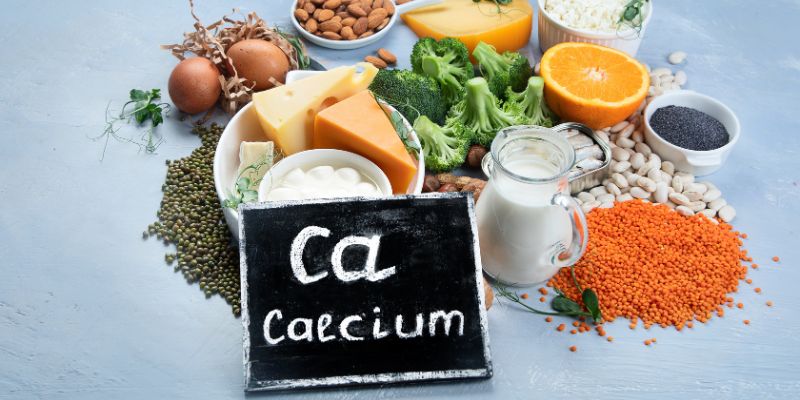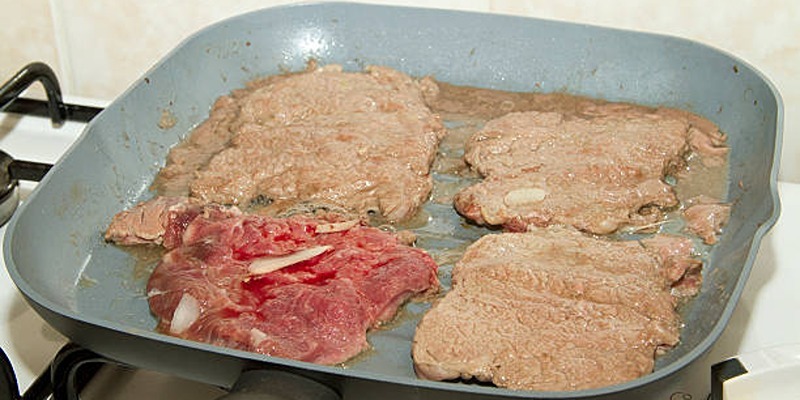Calcium is a mineral abundantly found in our bodies. The nutrient strengthens our bodies, supports the nervous system, and powers the muscles. Our bodies cannot produce calcium; therefore, adding enough calcium to our daily diet is crucial for good health.
Most people think dairy is the only rich source of calcium, but the fact is that along with dairy, several other foods can provide you with a good amount of calcium.
Do you know which calcium-rich foods are? If your answer is a no, worry not; continue to read and find the top calcium-rich foods. Also, you will get to know the health benefits of calcium here!

How Much Calcium Do Our Bodies Need?
To maintain the proper functioning of your bones, you must consume a specific amount of calcium-rich food, either with or without supplements. But, it is important to consult your doctor for how much calcium your body needs.
Here is how much calcium you need to consume per your age:
Age | Calcium |
0 to 6 months old | 200 mg daily |
7 to 12 months | 260 mg daily |
1 to 3 years | 700 mg daily |
4 to 8 years | 1,00 mg daily |
9 to 18 years | 1,300 mg daily |
19 to 50 years | 1,000 mg daily |
51 to 70 years | 1,200 mg daily for women |
51 to 70 years | 1,00 mg daily for men |
70+ years | 1,200 mg daily |

8 Calcium-Rich Foods and Their Health Benefits
If you are suffering from calcium deficiency or want to add more calcium to your diet, below are the best calcium-rich foods:
Seeds
Many seeds, like chia, sesame, celery, and poppy seeds, are rich in calcium. Seeds are small but powerful sources of nutrients. One tablespoon of poppy seeds contains 127 mg of calcium. Nutritious lipids and proteins are also found in seeds. Chia seeds, for instance, are high in omega-3 fatty acids.
Leafy Greens
Many leafy green vegetables, such as kale, collard greens, and spinach, are very healthful and rich in calcium. Spinach has excessive oxalate content and is not absorbed as effectively as other greens rich in calcium. Kale and collard greens have low oxalate and can be absorbed easily.
Amaranth
One highly rich nutrient pseudocereal is amaranth. It has an abundant amount of iron, magnesium, and phosphorus and is an excellent source of folate. The cooked amaranth grain has 116 mg of calcium per cup (246 grams). Amaranth leaves provide a good supply of vitamins A and C.
Dairy
One of the greatest ways to get calcium is dairy products. From 100 grams of dairy products, you can get 82 mg of calcium. Milk, cottage cheese, and buttermilk are considered rich sources of calcium from all dairy products.
Dairy products also have high-quality protein, which maintains and grows muscle. Probiotics that are good for the gut can be found in yogurt, and milk is enriched in vitamin D. Nutrients, including potassium, zinc, magnesium, and phosphorus, are also found in dairy. So, add dairy products to your diet and get a handful of calcium and other nutrients.
Canned Fish
Canned fish, like salmon and sardines, are loaded with calcium. Most of the calcium is found in their smooth, mashable bones that can be used in various meals. You can also use them to make fish cakes or a sauce for toast or add sardines or pieces of salmon to salads.
Soy
So, soya beans are common in East Asia and are a good calcium source. From 100 grams of soy, you can get more than 277 mg of calcium. Calcium and vitamin D supplementation should be added to soy milk so that people who skip dairy products can take advantage of these vital elements.
Rhubarb
Calcium, vitamin K, and minerals are abundant in rhubarb. It also has fiber, which controls the functioning of the digestive system. Also, rhubarb facilitates the rapid digestion of calcium. It is also high in oxalates.
Broccoli
Broccoli has less calcium than other dietary sources, but consuming it daily, with other foods high in calcium, can help maintain healthy bones. You can get about 35 mg of calcium from one cup of raw broccoli.
What Are The Health Benefits Of Calcium?
Calcium not only makes your bones and teeth strong, but the element also offers various incredible health benefits:
Cellular Function
The human body keeps the amount of calcium in the blood at a specific level so that the cells operate properly. When blood calcium levels drop, the body will obtain calcium from your bones. Therefore, you must get the required calcium from your diet to keep your bones strong.
Controls Blood Pressure
The calcium helps in the stretching and relaxation of the arteries. Therefore, you must consume calcium to keep the blood pressure in normal range. Consuming calcium through food is a more effective way to reap this advantage than taking tablets.
Bone Health
Osteoporosis results from an imbalance between the production and destruction of bones. Bone grows more quickly if it breaks down before the age of thirty. But, as you grow, the bones weaken, and you also take longer to recover.
Getting adequate calcium is an effective way to keep your bones healthy as you grow. The usual therapy for osteoporosis and osteopenia involves taking calcium supplements.
Reduce the Risk of Kidney Stones
As the amount of oxalates increases, the risk of kidney stones also increases. The calcium you get through food helps absorb the oxalis and reduces the risk of kidney stones.
Conclusion:
Calcium is an essential mineral that is used in a variety of ways in our bodies. The 99% of calcium we consume becomes part of our bones and teeth. Besides that, the mineral is required for blood clotting functioning of the nervous system and muscles. Therefore, you must consume an adequate amount of calcium in your diet. Dairy products, soy, seeds, canned fish, leafy greens, and amaranth are the rich sources of calcium. So, add these calcium-rich foods to your diet and start living healthy!







